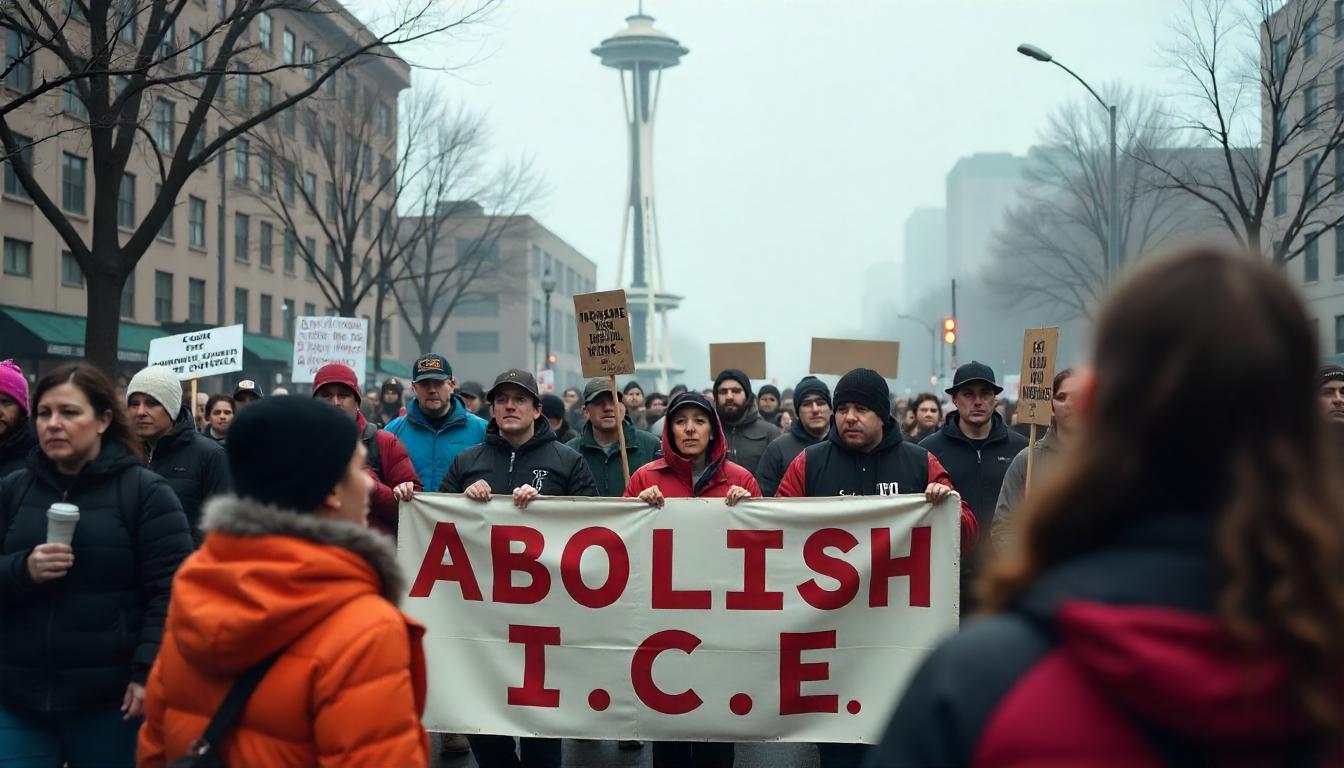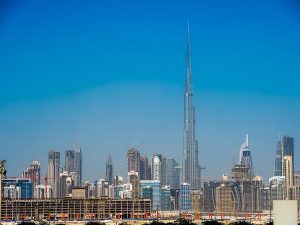Published on June 11, 2025
By: Rana Pratap
San Diego has joined Los Angeles, New York, Chicago, San Francisco, Oakland, Atlanta, Dallas, Denver, Philadelphia, Boston, Minneapolis, and more because a growing firestorm of protest has erupted across the nation in direct response to President Trump’s expanded travel ban and the sweeping immigration raids that have followed. With military troops deployed in U.S. cities, visa restrictions placed on multiple Muslim-majority and African nations, and families facing the devastating reality of separation, outrage is boiling over from coast to coast. From airports to federal buildings, communities are rising up in defense of immigrant rights, calling out what they view as a discriminatory policy that not only targets vulnerable populations but undermines the ideals of equality, refuge, and due process. In this moment of national reckoning, San Diego has become one more city refusing to stay silent.
San Diego has joined cities like Los Angeles, New York, Chicago, and more in a nationwide protest movement because President Trump’s expanded travel ban and aggressive immigration raids have triggered widespread outrage over family separations, racial targeting, and military deployments in major U.S. cities.
Advertisement
Wave of Protest Ignites Across America
Advertisement
San Diego has joined a fast-spreading wave of protests erupting in major cities across the United States in response to President Donald Trump’s expanded travel ban and intensified immigration enforcement. With demonstrators flooding airports, downtowns, and federal buildings, cities from Los Angeles and New York to Denver and Dallas are pushing back against a policy they believe threatens immigrant families, undermines civil rights, and disrupts the nation’s promise of refuge. The ban targets travelers from Afghanistan, Burma, Yemen, Somalia, Iran, Eritrea, Sudan, Libya, Chad, Equatorial Guinea, the Republic of Congo, and Haiti with full restrictions, while partially restricting entry from Burundi, Cuba, Laos, Sierra Leone, Togo, Turkmenistan, and Venezuela—fueling outrage over what many see as a discriminatory assault on Muslim-majority and African nations.
This new travel ban, which took effect Monday, imposes full restrictions on 12 countries — including Afghanistan, Iran, Somalia, and Haiti — and partial bans on seven others. Though the White House claims it’s a matter of national security, critics argue the policy disproportionately targets Muslim-majority and African nations, reigniting memories of the original 2017 travel ban.
San Diego Demonstrators Take a Stand
At San Diego International Airport, the arrival area turned into a scene of peaceful resistance as activists, immigrant families, and legal advocates gathered to protest. Organized by local refugee coalitions and immigrant rights groups, the demonstration focused on the personal cost of the policy. Families who had been working for years to bring relatives to the U.S. now face indefinite separation. Protesters held signs reading “Refugees Welcome” and “End the Ban,” while legal volunteers assisted affected travelers.
Community leaders warned that the policy cuts off vulnerable populations seeking asylum and punishes those already vetted through the legal immigration system. The demonstration remained calm but emotionally charged, as speakers called for congressional support of legislation to block discriminatory entry bans in the future.
Advertisement
Los Angeles Turns into a Militarized Zone
Advertisement
In Los Angeles, protests collided with a heavy-handed federal response. More than 2,100 National Guard members and 700 Marines deployed across downtown following several nights of demonstrations. The military presence, meant to assist ICE operations, has drawn sharp criticism from California officials and human rights observers.
A nightly curfew now blankets a one-square-mile stretch of downtown from 8 p.m. to 6 a.m., affecting tourists, businesses, and residents. Streets that once hosted open-air concerts and food trucks now stand guarded by troops and armored vehicles. Travelers staying in central LA hotels reported detours, ID checks, and event cancellations. Despite the curfew, daytime protests continue to draw crowds demanding that the city reject federal interference and stand with immigrant communities.
New York Protesters Fill Foley Square
Thousands of New Yorkers rallied in Foley Square, turning the plaza into a sea of banners and chants. The protest, organized by civil rights groups and student unions, began peacefully but led to confrontations later in the evening. Police arrested more than 20 demonstrators after marchers advanced toward federal court buildings.
Meanwhile, legal teams set up inside JFK Airport to assist travelers from banned countries. Immigration attorneys say multiple passengers were delayed or questioned upon arrival. Despite the disruptions, organizers promised the movement would continue to grow, planning follow-up demonstrations throughout the boroughs.
Chicago Marches from Downtown to the Airport
In Chicago, residents gathered in Daley Plaza before marching to O’Hare International Airport. The protest highlighted how the ban affects Chicago’s large immigrant population, particularly those with roots in North Africa and the Middle East. Airport staff reported minimal disruptions, though several international flights saw increased Customs scrutiny.
Community centers in nearby neighborhoods opened their doors to provide resources and legal help for families impacted by the policy. Protesters made clear that they viewed the ban as both unconstitutional and immoral, vowing to keep pressure on federal officials and elected leaders.
San Francisco and Oakland Protest Together
The Bay Area responded with unified strength. In San Francisco, demonstrators lined Market Street and gathered outside City Hall, calling on local government to defy federal mandates. Across the Bay in Oakland, a large crowd held a candlelight vigil in honor of those stranded or separated from their families due to the ban.
Both cities saw peaceful protests with strong turnout from religious organizations, college students, and long-time immigrant communities. Bay Area leaders criticized the militarization of downtown Los Angeles and pledged local legal support for impacted families.
Atlanta Pushes Back Against ICE
Atlanta saw protestors descend on ICE offices in the city center, demanding an end to raids and the rollback of immigration restrictions. Marchers represented dozens of nationalities, many of whom had personal ties to the banned countries. Police maintained a low profile as the event unfolded peacefully. Local clergy, civil rights groups, and students made impassioned speeches, linking the ban to broader patterns of systemic exclusion.
Texas Cities Unite in Protest
Texas responded with forceful opposition in multiple cities. In Dallas, hundreds gathered in front of immigration courts to denounce the policy. In Austin, protestors marched through downtown toward the Capitol, while Houston hosted a multilingual rally in the Museum District.
All three cities reported high turnout and minimal disruption, although several immigrant aid groups said they’re bracing for higher demand as fear spreads through local communities. Volunteers offered translation services and legal advice on the ground throughout the day.
Denver’s Protest Meets Police Response
In Denver, the situation became more volatile. Protestors blocked roads near the state capitol, and police responded with smoke canisters after marchers refused to disperse. Multiple arrests were reported. Despite the crackdown, protestors regrouped later that evening for a peaceful vigil near Civic Center Park. Organizers said the heightened police response only strengthened their resolve.
Philadelphia, Boston, and Minneapolis Join In
In Philadelphia, demonstrators gathered outside City Hall before marching toward ICE’s regional headquarters. Families brought children, clergy led prayers, and local officials spoke about the policy’s damage to the city’s inclusive identity.
Boston’s protest followed a similar path, starting with speeches at Boston Common before spilling into the downtown core. Bystanders joined the crowd as it moved, and no arrests were reported.
Minneapolis focused its protest on a federal immigration office downtown, where Somali-American leaders addressed the crowd. The city, home to one of the country’s largest Somali communities, has been particularly impacted by the ban. Residents called the policy an assault on their families and their right to reunite with loved ones overseas.
Cities Where Protests Have Erupted Over the Travel Ban
- San Diego, California
Demonstrators rallied at the international airport, led by refugee and immigrant rights groups demanding an end to the ban and support for family reunification. - Los Angeles, California
Thousands marched downtown as over 2,100 National Guard troops and 700 Marines deployed. A nightly curfew disrupted local life and drew national concern. - New York City, New York
Protesters packed Foley Square and marched to federal buildings. Legal teams stationed at JFK Airport supported affected travelers. - Chicago, Illinois
Rallies began at Daley Plaza and moved toward O’Hare Airport, highlighting impacts on the city’s diverse immigrant communities. - San Francisco, California
Crowds gathered on Market Street and outside City Hall, calling on officials to resist federal enforcement actions. - Oakland, California
A peaceful candlelight vigil honored families blocked or separated by the ban. Community groups joined in collective solidarity. - Atlanta, Georgia
Protesters surrounded ICE offices downtown, demanding a halt to raids and voicing support for the Muslim and African communities most affected. - Dallas, Texas
Hundreds marched in front of immigration courts, joined by local activists and legal aid providers. - Austin, Texas
Demonstrations moved through downtown and up to the Capitol, uniting students, faith leaders, and immigrant families. - Houston, Texas
Multilingual rallies were held in the Museum District, drawing diverse crowds in opposition to the policy. - Denver, Colorado
Protests near the state capitol turned tense. Police used smoke canisters as crowds refused to disperse, resulting in multiple arrests. - Philadelphia, Pennsylvania
Marchers started at City Hall and moved toward ICE offices. Immigrant families and local officials joined together in protest. - Boston, Massachusetts
Demonstrations began at Boston Common and surged through downtown. Participants demanded federal accountability. - Minneapolis, Minnesota
Somali-American leaders led protests outside federal immigration offices, speaking out against family separation and racial profiling.
San Diego has joined cities like Los Angeles, New York, Chicago, San Francisco, Atlanta, Philadelphia, Boston, and More in a nationwide protest movement because President Trump’s expanded travel ban and aggressive immigration raids have triggered widespread outrage over family separations, racial targeting, and military deployments in major U.S. cities.
A National Crossroads
What began as scattered outrage has now coalesced into a coast-to-coast firestorm of protest. In city after city, Americans are showing up to defend the values of inclusion, fairness, and family unity. The travel ban has triggered more than just legal action—it has reignited a nationwide debate about who gets to belong, and who decides.
Whether these protests lead to immediate policy change remains to be seen. But across the U.S., the message is loud and clear: communities won’t stay silent while families are separated, refugees are shut out, and civil liberties are compromised.
Advertisement
Tags: Atlanta, Boston, Chicago, Los Angeles, New York, Philadelphia, san diego, San Francisco, Tourism news, travel industry, Trump Travel ban, US
Advertisement
Tags: Atlanta, Boston, Chicago, Los Angeles, New York, Philadelphia, san diego, San Francisco, Tourism news, travel industry, Trump Travel ban, US
I want to receive travel news and trade event update from Travel And Tour World. I have read Travel And Tour World’sPrivacy Notice.
Sunday, October 12, 2025
Sunday, October 12, 2025
Sunday, October 12, 2025
Sunday, October 12, 2025
Sunday, October 12, 2025
Sunday, October 12, 2025
Sunday, October 12, 2025
Sunday, October 12, 2025


![Read more about the article The Ultimate Guide to SIXT Rent a Car [SIXT Advantage Circle Loyalty Program] – Upgraded Points](https://breathtakinglagoon.com/wp-content/uploads/2025/11/wp-header-logo-625-300x210.png)

